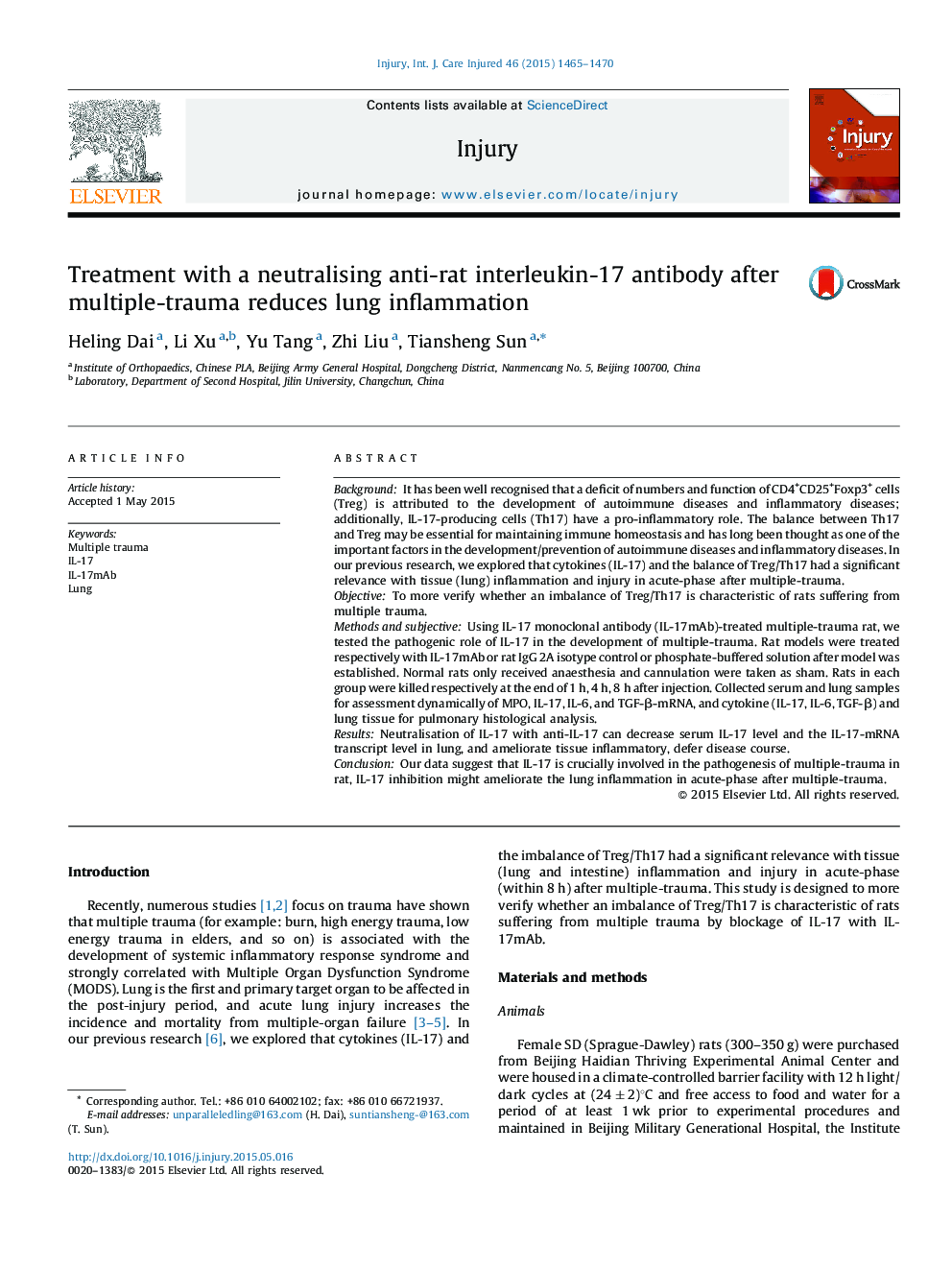| Article ID | Journal | Published Year | Pages | File Type |
|---|---|---|---|---|
| 3238882 | Injury | 2015 | 6 Pages |
BackgroundIt has been well recognised that a deficit of numbers and function of CD4+CD25+Foxp3+ cells (Treg) is attributed to the development of autoimmune diseases and inflammatory diseases; additionally, IL-17-producing cells (Th17) have a pro-inflammatory role. The balance between Th17 and Treg may be essential for maintaining immune homeostasis and has long been thought as one of the important factors in the development/prevention of autoimmune diseases and inflammatory diseases. In our previous research, we explored that cytokines (IL-17) and the balance of Treg/Th17 had a significant relevance with tissue (lung) inflammation and injury in acute-phase after multiple-trauma.ObjectiveTo more verify whether an imbalance of Treg/Th17 is characteristic of rats suffering from multiple trauma.Methods and subjectiveUsing IL-17 monoclonal antibody (IL-17mAb)-treated multiple-trauma rat, we tested the pathogenic role of IL-17 in the development of multiple-trauma. Rat models were treated respectively with IL-17mAb or rat IgG 2A isotype control or phosphate-buffered solution after model was established. Normal rats only received anaesthesia and cannulation were taken as sham. Rats in each group were killed respectively at the end of 1 h, 4 h, 8 h after injection. Collected serum and lung samples for assessment dynamically of MPO, IL-17, IL-6, and TGF-β-mRNA, and cytokine (IL-17, IL-6, TGF-β) and lung tissue for pulmonary histological analysis.ResultsNeutralisation of IL-17 with anti-IL-17 can decrease serum IL-17 level and the IL-17-mRNA transcript level in lung, and ameliorate tissue inflammatory, defer disease course.ConclusionOur data suggest that IL-17 is crucially involved in the pathogenesis of multiple-trauma in rat, IL-17 inhibition might ameliorate the lung inflammation in acute-phase after multiple-trauma.
